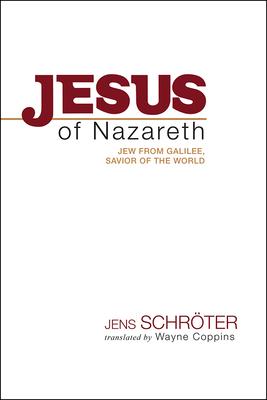Jesus of Nazareth continues to fascinate. From antiquity onwards countless people have found meaning for their lives through Jesus' teaching. His life led to the establishment of a community that subsequently grew into what is today the world's largest religion. At the center of the Christian faith stands the confession that this Jesus is both "true human being and true God."
In Jesus of Nazareth, noted German New Testament scholar Jens Schrter directly addresses the connection between Jesus' humanity and divinity--how the historical Jesus can also be the Christ of confession. Schrter begins by looking at the modern quest for the "historical Jesus" from its beginnings down to the present. In the process Schrter isolates key questions of historical method--how can we reconstruct the past? What is the relationship between these reconstructions and past reality itself? Schrter then examines the words and deeds of Jesus, including his death and resurrection, in their Galilean and Greco-Roman contexts. Schrter finally measures the impact that Jesus has had in literature, film, music, and the fine arts. Jesus of Nazareth thus narrates the remarkable story of how a Jew from Galilee became the savior of the world, how Jesus can be said to be both God and human, and how this Jesus continues to exert influence.
